
ISLAMABAD, April 19 (Xinhua) -- Former Pakistani President Pervez Musharraf was arrested early Friday morning, a day after a court ordered his arrest for imposing emergency rule in 2007.
Musharraf appeared before a court of a local magistrate in Islamabad and formally offered his arrest, said his defence lawyer Qamar Afzal.
The judicial magistrate Abbas Shah granted a two-day transit remand of Musharraf to the police to question him about his action to detain judges after they restrained from work.
Musharraf left the court room after a brief appearance to fulfill legal requirements following Thursday's orders of his arrest by Islamabad High Court.
Officials have requested that Musharraf should be placed in house and his house be declared as sub-jail over security concerns.
Musharraf's lawyer had also requested the magistrate to send his client on judicial remand instead of handing over to the police on physical remand.
Police sources said that the former president was brought to the court of judicial magistrate, Abbas Shah, as his appearance was a legal requirement after his arrest order.
The Islamabad High Court on Thursday ordered Musharraf's arrest for detaining senior judges when he imposed emergency rule in 2007.
The Chief Justice of Islamabad High Court, Shaukat Aziz Siddiqi, had canceled his interim bail in the case. However, Musharraf succeeded in fleeing the court with his security guards.
A case had been filed against Musharraf for placing dozens of top judges under house arrest when he imposed emergency rule and suspended the constitution in November 2007. The judges had refused to take oath under his Provincial Constitutional Order.
A lower court had previously issued arrest warrant for Musharraf in the case and had declared him proclaimed offender as he had previously failed to appear before the court despite several orders.
The Islamabad High Court had granted interim bail in the case and canceled his bail when he appeared before the Chief Justice on Thursday.
Musharraf is also facing other legal cases, including treason charges for imposing emergency rule, the 2007 assassination of former premier Benazir Bhutto and the killing of Baloch leader Nawab Akbar Bugti in 2006.
Musharraf, who ruled Pakistan from 1999 to 2008, denied all charges and said he would defend himself in courts. He had resigned in August 2008 to avoid impeachment by the parliament and went into exile since then.
He returned to Pakistan last month after over four years of self-imposed exile in Britain and the United Arab Emirates to take part in the May 11 parliamentary elections for his All Pakistan Muslim League party. But a couple of days ago, he was disqualified by the Election Commission of Pakistan for contesting the coming elections.

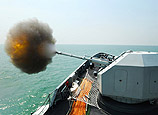
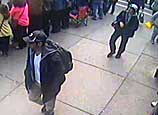
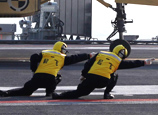

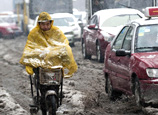

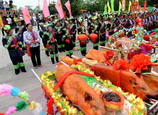








 Snowfall hits Taiyuan, N China
Snowfall hits Taiyuan, N China


![]()
